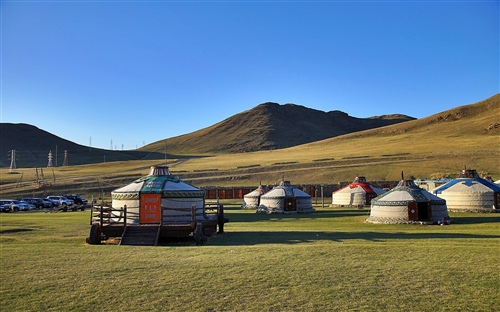
用形容词写10个关于家庭成员的句子英语
able 有才干的,能干的 adaptable 适应性强的 active 主动的,活跃的 aggressive 有进取心的 ambitious 有雄心壮志的 amicable 友好的 analytical 善于分析的 apprehensive 有理解力的 aspiring 有志气的,有抱负的 audacious 大胆的,有冒险精神的 bad-tempered 脾气暴燥的 bigmouth 多嘴多舌的 bland 冷漠的 bossy 专横跋扈的 brave 勇敢的 brilliant 有才气的 capable 有能力的,有才能的 careful 办事仔细的 candid 正直的 competent 能胜任的 cooperative 有合作精神的 caring 有同情心的 clever 机灵的,聪明的 charitable 宽厚的 cheerful 开朗的 childish 幼稚的 comical 滑稽的 conceited 自以为是的 confident 有信心的 conscientious 认真的,自觉的 considerate 体贴的 constructive 建设性的 contemplative 好沉思的 cooperative 有合作精神的 courageous 勇敢的,有胆量的 creative 富创造力的 cultured 有教养的 dependable 可靠的 diplomatic 老练的,有策略的 disciplined 守纪律的 dutiful 尽职的 well--educated 受过良好教育的 efficient 有效率的 energetic 精力充沛的 expressivity 善于表达 faithful 守信的,忠诚的 frank 直率的,真诚的 generous 宽宏大量的
英语中形容词开头单独成句有什么规定
如果没理解错,形容词单独成句一般都是带有一种较强的感情色彩
比如赞叹,愤怒。
形容词本身没有什么变化。
比如,形容“好极了”直接可以说:Great\\\/Excellent\\\/Gorgeous\\\/Fantastic\\\/Perfect\\\/Fabulous\\\/Wonderfulhope it helps.
英语形容词为什么可以放在名词后面
其实少数前置置意思有变化的形容 多数定语是表示强调了 很多时候前置和后置没有硬性要求一、形容词作后置定语的几种情况1. 当形容词修饰由 any-, every-, no-, some- 和 -body,-one, -thing 等构成的复合不定代词时,形容词需要后置。
例如:Is there anything wrong with the machine?2. 当形容词修饰起名词作用的 anywhere , somewhere 时,通常后置。
例如:Can you find anywhere safe?3. 以 -able 或 -ible 结尾的形容词一般充当后置定语,表示暂时的特征或现象,而且中心名词前大多有形容词最高级或 all, only, every 等。
例如:This is the earliest edition obtainable.That's the only star visible now.4. 以字母 a- 开头的表语形容词,如 asleep, awake, afraid, afloat, alive 等作定语时,通常后置。
例如:The baby awake is looking here and there.He was the only man alive in the accident.5. else 修饰疑问代词时,须后置。
例如:What else can I do for you?
英语形容词100个加音标
形容词 (adj.) big大的[biɡ] small小的[smɔ:l] long长的[lɔŋ, lɔ:ŋ] tall高的[tɔ:l] short短的;矮的[ʃɔ:t] young年轻的[jʌŋ] old旧的;老的[əuld] strong健壮的[strɔŋ, strɔ:ŋ] thin瘦的[θin] active积极活跃的['æktiv] quiet安静的['kwaiət] nice好看的[nais] kind和蔼亲切的[kaind] strict严格的[strikt] smart聪明的[smɑ:t] funny滑稽可笑的['fʌni] tasty好吃的['teisti] sweet甜的[swi:t] salty咸的['sɔ:lti] sour酸的['sauə] fresh新鲜的[freʃ] favourite最喜爱的['feivərit] clean干净的[kli:n] tired疲劳的 ['taiə]d excited兴奋的[ik'saitid] angry生气的['æŋɡri] happy高兴的['hæpi] bored无聊的 sad忧愁的[sæd] taller更高的[tɔ:l] ə shorter更矮的[ʃɔ:t] ə stronger更强壮的[strɔŋ, strɔ:ŋə] older年龄更大的['əuldə] younger更年轻的['jʌŋə, 'jʌŋɡə] bigger更大的[biɡə] heavier更重的['lɔŋɡə, 'lɔ:ŋ-] longer更长的['lɔŋɡə, 'lɔ:ŋ-] thinner更瘦的 smaller更小的[smɔ:lə] good好的[ɡud] fine好的[fain] great很好的[ɡreit] heavy 重的['hevi] new新的[nju:, nu:] fat胖的[fæt] 9 happy快乐的['hæpi] right对的[rait] hungry饥饿的['hʌŋɡri] cute逗人喜爱的[kju:t] little小的['litl] lovely可爱的['lʌvli] beautiful漂亮的['bju:tiful] colourful色彩鲜艳的['kʌləful] pretty漂亮的['priti] cheap便宜的[tʃi:p] expensive昂贵的[ik'spensiv] juicy多汁的['dʒu:si] tender嫩的['tendə] healthy健康的['helθi] ill有病的[il] helpful有帮助的['helpful] high高的[hai] easy简单的['i:zi] proud骄傲的[praud] sick有病的[sik] better更好的[betə] higher更高的[haiə]



